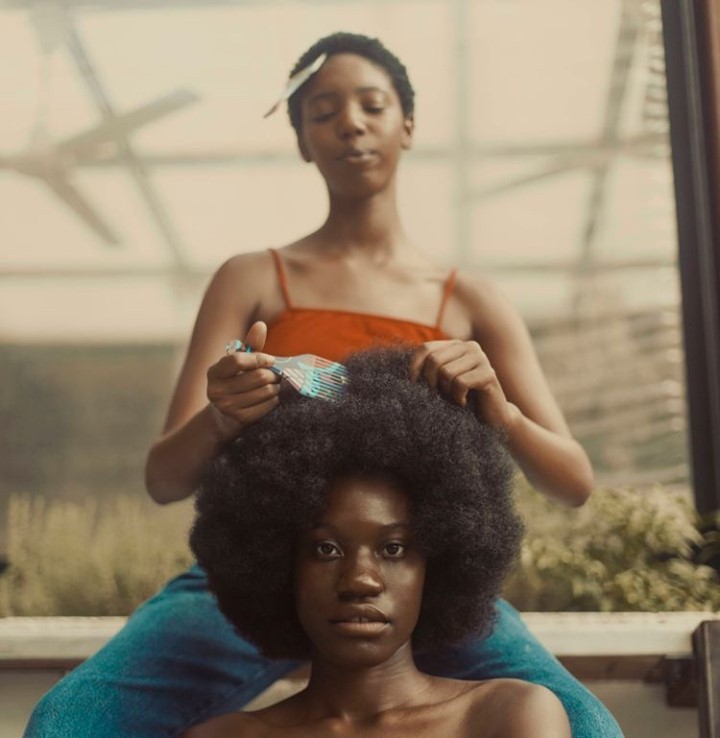A comprehensive guide to natural hair care — Lifestyle — Headline News – Nigeria and World News
In recent years, a beautiful movement has emerged that celebrates the diversity and uniqueness of natural hair. Embracing your natural texture, whether it's tight coils, loose curls, or anything in between, is a journey of self-discovery and self-love. A comprehensive guide on how to care for your hair to help it grow beautifully and stay healthy.
In recent years, a beautiful movement has emerged that celebrates the diversity and uniqueness of natural hair. Embracing your natural texture, whether it's tight coils, loose curls, or anything in between, is a journey of self-discovery and self-love. Here's a comprehensive guide on how to care for your natural hair to keep it full and healthy.
Understand your natural hair type
The first step to caring for your natural hair is understanding your hair type. There are four main types of hair: type 1 (straight), type 2 (wavy), type 3 (curly), and type 4 (coiled). Each type has subcategories that further define the hair texture and curl pattern.
cleansing and conditioning
Cleansing and conditioning are essential steps in your natural hair care routine. However, it is important to find the right balance so that your hair does not lose its natural oils.
cleansing:
● For type 1 and type 2 hair, you can wash your hair every day or every other day with a mild shampoo.
● For type 3 and type 4 hair, cleanse your hair less often, maybe once a week or once every two weeks. Use a gentle shampoo designed specifically for natural hair.
conditioning:
● After cleansing, it is important to condition your hair to moisturize it and prevent hair breakage.
●Please use deep conditioner once a week or once every two weeks. Apply to hair from roots to ends and leave on for 20-30 minutes or overnight.
natural hair styling
There are endless ways to style your natural hair. Here are some tips:
● For curly or coiled hair, use a wide-toothed comb to gently detangle the hair. Avoid using regular brushes as this can damage your hair.
● Use styling products designed for natural hair, such as gels, creams, and mousses. Avoid using products that contain alcohol as they can dry out your hair.
●If you want to straighten your hair, use a heat protect spray before using heat styling tools.
protect natural hair
Protecting your hair from heat damage, sunlight, and harsh chemicals is essential to maintaining healthy hair. Here are some tips:
● Please refrain from using styling tools that generate heat, such as flat irons and hair irons.
● Wear a hat to protect your hair from the sun.
● Avoid using harsh chemicals such as relaxers and dyes.
Carefully untangle
Natural hair can be prone to tangles, especially if you have tight curls. Rather than rushing through the detangling process, be patient and gentle with it. Start at the ends of the hair and work your way up using a wide-toothed comb or your fingers. When your hair is damp, use a leave-in conditioner or oil to detangle your hair and make it slippery and make the process easier.
Healthy Eating, Healthy Hair: Nourishing from within
Hair health is closely related to overall health. A balanced diet rich in vitamins, minerals and protein contributes to strong and vibrant hair. Include foods like fish, eggs, leafy greens, and nuts to provide your body with the nutrients it needs for optimal hair growth.
Iroha of natural hair care products
Look for products that are free of sulfates, parabens, and silicones. Choose natural oils like coconut, jojoba, and olive oil to nourish your hair. Experiment with leave-in conditioners, curl creams, and gels to find what works best for your curls.
consistent trimming
Regular trimming is essential to maintain healthy ends and prevent split ends. Aim for trimming every 3-4 months or as needed. This habit not only keeps your hair looking fresh, but also contributes to its overall health.
Nighttime routine: protect your hair while you sleep
Cotton pillowcases absorb moisture from your hair, which can cause friction and lead to breakage. Purchase a satin or silk pillowcase to reduce chafing and retain moisture. Alternatively, use a satin scarf or bonnet to protect your curls while you sleep.
Celebrate your natural beauty: confidence is the key
Finally, embrace your natural beauty with confidence. Your natural hair is a unique expression of yourself. Loving your natural hair isn't just a physical journey, it's a mental and emotional journey as well. Celebrate every curl, kink, and coil.
Source: guardian.ng

